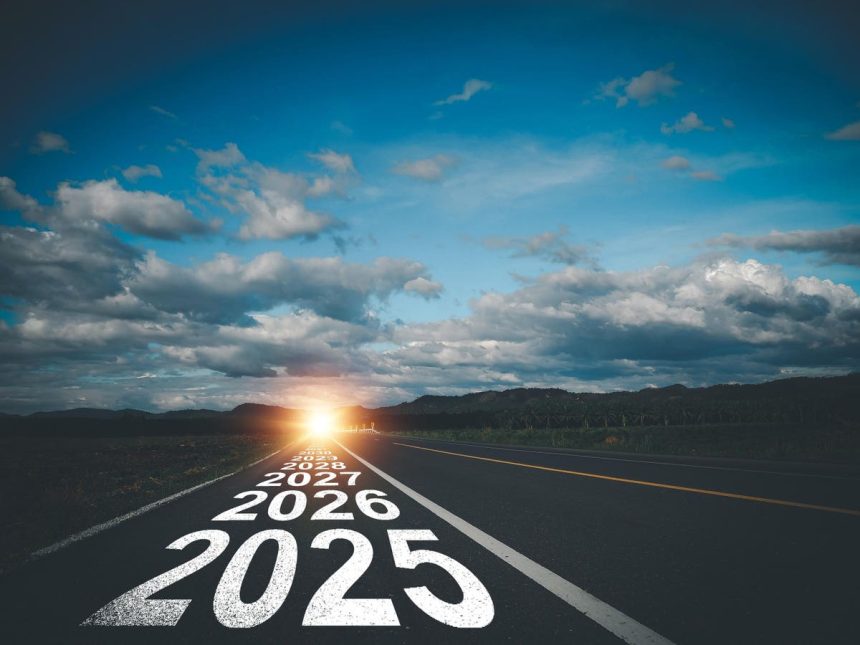A Year of Transformative Change: 2025 and the Dawn of a New Era
The year 2025 stands poised as a pivotal moment in human history, a year of profound transformation driven by the convergence of groundbreaking advancements across multiple fields. Artificial intelligence, robotics, biotechnology, and space exploration are rapidly reshaping the economic, social, and even existential landscape. This era of unprecedented innovation presents both immense opportunities and significant challenges as humanity navigates the complexities of integrating these transformative technologies into the fabric of society. This year will necessitate a delicate balancing act: embracing the potential for progress while ensuring ethical implementation and responsible use to mitigate potential risks.
Economic and Geopolitical Shifts in the Age of Innovation
The global economic order is undergoing a significant shift, driven by the uneven distribution of technological advancements. Nations that embrace and invest in cutting-edge technologies will thrive in the new innovative economy, while those lacking the infrastructure or capacity to adapt will face increasing marginalization. Automation and the transition towards decarbonization will further exacerbate this divide, redefining international power dynamics. Emerging economies, such as the BRICS nations, are actively seeking to challenge the dominance of the U.S. dollar, reflecting a shift in global economic influence. Despite this evolving landscape, the U.S. economy is projected to experience growth, reduced inflation, increased employment, and lower interest rates, highlighting the importance of continuous investment in innovation, workforce reskilling, and adaptation to remain competitive on the global stage.
AI Ascendancy: Reshaping Markets and Redefining Work
The financial markets anticipate significant growth in 2025, fueled in large part by the rise of artificial intelligence. AI-focused companies, such as Nvidia, are expected to lead the market surge, driving overall returns and attracting significant investment. The anticipated IPOs of companies like Stripe and Databricks will further fuel the momentum of the tech sector. Robotics, another key area of technological advancement, is projected to experience exponential growth, with companies like Boston Dynamics pushing the boundaries of what’s possible with humanoid and multi-tasking robots. The integration of AI across diverse industries, while creating immense value, will also introduce volatility as traditional sectors grapple with incorporating these new technologies into their existing systems. The widespread adoption of AI agents, capable of complex tasks ranging from legal analysis to supply chain optimization, will redefine the nature of work, raising fundamental questions about human purpose and the meaning of labor in an increasingly automated world.
Beyond Earth’s Boundaries: Space Exploration and the Multi-Planetary Vision
2025 marks a significant leap towards realizing the long-held dream of human expansion into space. Private companies and government agencies are collaborating to establish permanent habitats on the moon, laying the foundations for a sustainable economic presence beyond Earth. Asteroid mining is transitioning from concept to reality, with companies like AstroForge developing innovative technologies to extract valuable resources from celestial bodies. Advancements in reusable rocket technology, driven by companies like SpaceX and Blue Origin, are making space travel increasingly accessible, albeit primarily to the ultra-wealthy. These developments, combined with the growing interest of nations in securing space-based assets for economic and strategic advantage, have the potential to create trillion-dollar industries. However, the nascent nature of space governance and the absence of robust mechanisms for conflict resolution pose significant challenges as humanity ventures further into the cosmos. 2025 represents a crucial juncture where the dream of becoming a multi-planetary species begins to transition from science fiction to a tangible possibility, necessitating the development of new frameworks for managing and regulating human activities in space.
Biotechnology and the Redefinition of Health and Humanity
The field of biotechnology is experiencing a revolutionary transformation, with far-reaching implications for human health and longevity. Personalized medicine, tailored to individual genetic profiles, is becoming increasingly prevalent, driven by advancements in AI-powered diagnostics and treatment strategies for chronic diseases. Anti-aging therapies targeting cellular and genetic processes are gaining momentum, promising to extend human lifespans and potentially redefine the aging process. Gene-editing technologies like CRISPR, combined with the application of AI in drug discovery and clinical research, are accelerating the pace of medical innovation. These breakthroughs hold the potential to eradicate diseases at their root, shifting the focus of healthcare from managing symptoms to achieving optimal health and well-being. However, the ethical implications of genetic manipulation and the potential for unforeseen consequences require careful consideration as these powerful technologies become more readily available.
Transforming Industries: Automotive, Cybersecurity, and the Data Center Revolution
The automotive industry is undergoing a rapid transition towards electric vehicles (EVs), with projections indicating a significant increase in EV adoption in 2025. Self-driving vehicle fleets are beginning to emerge in major cities, paving the way for a future of autonomous transportation. This shift towards EVs will have profound implications for the global energy landscape, disrupting the oil industry and driving the adoption of green energy solutions. Cybersecurity is another area of paramount importance, with spending projected to surpass $300 billion as businesses grapple with the increasing sophistication of AI-driven cyber threats. AI-powered defense systems will be essential in mitigating these risks, requiring a global collaborative approach to ensure the security of critical infrastructure. The exponential growth of AI is also driving immense investment in data centers, the backbone of the compute-driven future. Hyper-efficient, liquid-cooled data centers are becoming essential to support the vast computational demands of AI applications, particularly in computationally intensive fields like healthcare and automotive research. Sustainable design and energy efficiency will be key considerations in data center development, creating opportunities for green tech companies and driving legislative changes to promote environmentally responsible practices.
The Path to Artificial General Intelligence and the Future of Intelligence
2025 may mark a watershed moment in the development of artificial intelligence, with the potential emergence of artificial general intelligence (AGI) – machines capable of human-level cognitive abilities. This achievement will raise fundamental questions about the nature of intelligence, creativity, and consciousness. The development of AGI systems capable of solving complex, multi-disciplinary problems will necessitate new approaches to safety, control, and ethical oversight. Neural architectures and quantum computing will be key drivers of this technological leap, fueling advancements that could redefine the relationship between humans and machines. International cooperation and regulation will be crucial to ensure that AGI development aligns with societal values and ethical principles, mitigating potential risks and maximizing the benefits of this transformative technology. The legal precedents set in 2025 will shape the future trajectory of AI, influencing its accessibility, ethical use, and impact on society. Economic disruption caused by AI will continue to intensify, challenging traditional business models and requiring workforce adaptation and reskilling. The rise of AI-powered startups, fueled by venture capital and characterized by unprecedented efficiency and scalability, will further disrupt established industries, leading to a reconfiguration of competitive landscapes and the emergence of new market players. The year 2025 represents a pivotal moment in human history, a time of unprecedented technological advancement and profound societal transformation. Navigating this era of change will require careful planning, ethical considerations, and a global collaborative effort to harness the immense potential of these groundbreaking technologies for the betterment of humanity.



